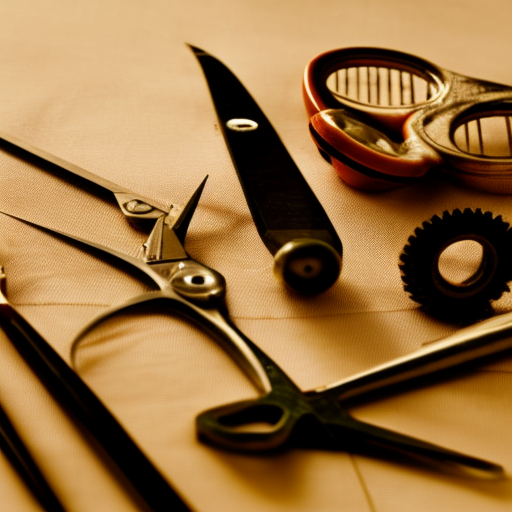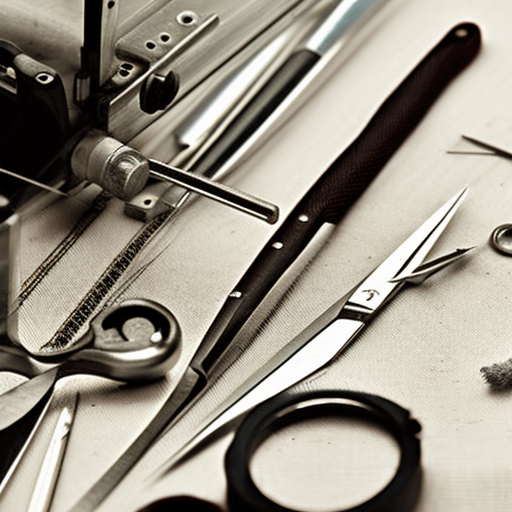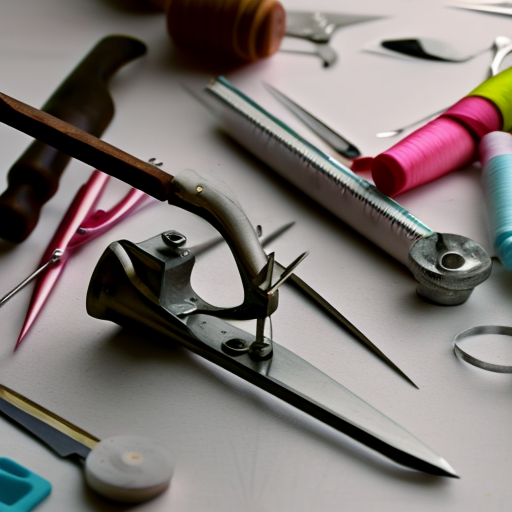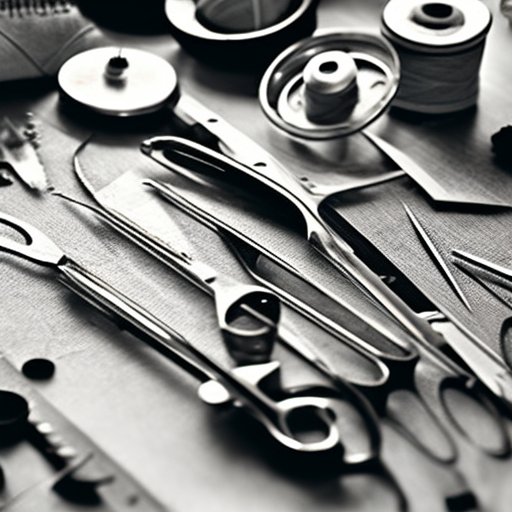“In sewing, a pattern is only the beginning, the fabric is where the real magic happens.”
As a sewist or even just a beginner in the world of sewing and dressmaking, the transfer of a pattern onto the fabric is a crucial step in the process. It is the foundation of any sewing project and ensures that the final product turns out as intended. Without proper transfer, the sewing project can end up being a disaster. That’s why having the right tools for pattern transfer is essential.
The Basics
The most common tools used for pattern transfer are tracing paper, tracing wheel, chalk, and marking pens. These tools are inexpensive and can be found in any sewing supply store. They come in various colors, sizes, and forms, making it easy to choose the one that best suits your needs.
Tracing Paper and Tracing Wheel
Tracing paper and tracing wheel are the most popular tools for pattern transfer. The tracing paper is thin and transparent, which makes it easy to see the lines from the pattern through it. The tracing wheel has sharp teeth that produce dotted lines onto the fabric when used with tracing paper. These tools are perfect for transferring patterns onto medium to heavyweight fabrics such as denim and cotton.
Chalk
Seamstress chalk, also known as tailor’s chalk, is a popular choice for pattern transfer. It comes in different forms, such as pencils, powder, and blocks. The chalk is easy to erase, making it perfect for temporary markings. It works well on most fabrics, especially on dark colored ones. However, it can be quite messy and can rub off onto the fabric. Therefore, it’s essential to test it on a scrap fabric before using it on the actual project.
Marking Pens
Marking pens are fantastic for transferring patterns onto fabric. They come in different colors, but blue and white pens are the most commonly used. The markings made by these pens are visible, and once used, can be easily removed with water or heat. They are perfect for marking darts, pocket placements, and seamlines. It’s essential to use these pens cautiously and avoid pressing too hard, as they can leave permanent markings on delicate fabrics.
Tips for Successful Pattern Transfer
- Make sure to use a sharp tracing wheel when transferring the pattern. This will ensure clear and visible lines on the fabric.
- Always use a scrap piece of fabric to test the tools on before transferring the pattern onto your main fabric. This will help avoid any mistakes on the actual project.
- It is recommended to use a lightbox or a window to trace the pattern onto the tracing paper. This will help in ensuring that the pattern lines are accurately transferred onto the fabric.
- Always use a fabric-friendly marking tool. Test different tools on a scrap piece of fabric to see which one works best for your particular fabric.
- Never use a regular pen or pencil for pattern transfer, as they can leave permanent markings on the fabric.
- When using tailor’s chalk or marking pens, make sure to mark on the wrong side of the fabric to avoid visible markings on the right side of the fabric.
- Always double-check the transferred pattern lines on the fabric before moving on to cutting and sewing.
In Conclusion
Pattern transfer is an essential step in any sewing project, and having the right tools can make all the difference. It is necessary to choose the appropriate tool depending on the fabric being used. By following these tips and using the right tools, you can ensure a successful pattern transfer and a well-made final product. Happy stitching!
“A needle and thread may form the backbone of sewing, but it’s the right tools and techniques that bring any project to life.”









Great post! Excellent info and guide.
That’s really helpful! I’m so glad to know that there are so many tools available that can help make precise measurements and accurate transfers onto fabrics. It makes sewing projects so much easier!
Fascinating read! I never knew there were so many tools that help with drafting and designing patterns. Now I’m inspired to try a few of these tools out for my own sewing projects!
This is really useful information, especially for beginners in the sewing world! I didn’t realize all the different tools out there that can help you make sure your pattern is perfect! It’s also interesting to learn more about the basics of drafting and designing patterns. Thanks for the great info!
Very helpful information, thanks for sharing!
This is an invaluable guide for anyone looking into the basics of sewing! The tools mentioned are essential to getting that perfect pattern and ending up with a beautiful garment. It’s amazing how the right tools can help make the process so much easier!